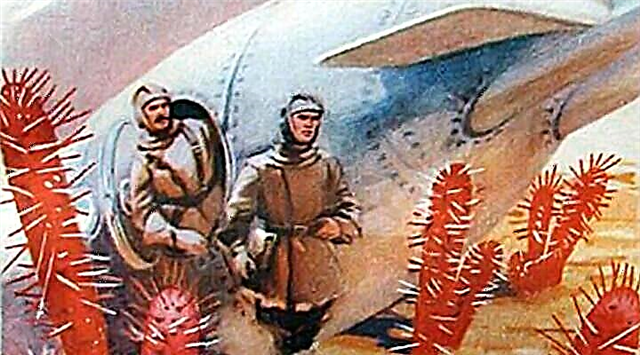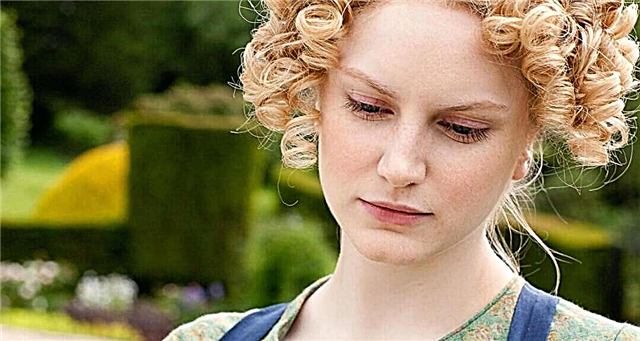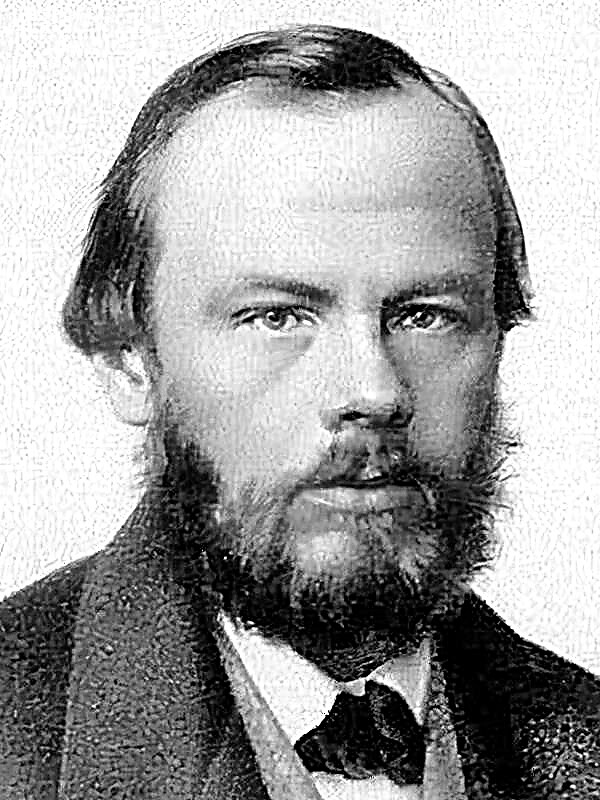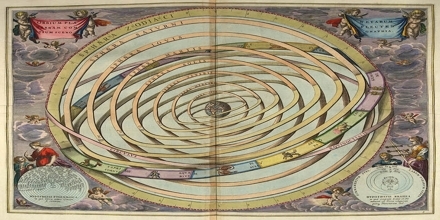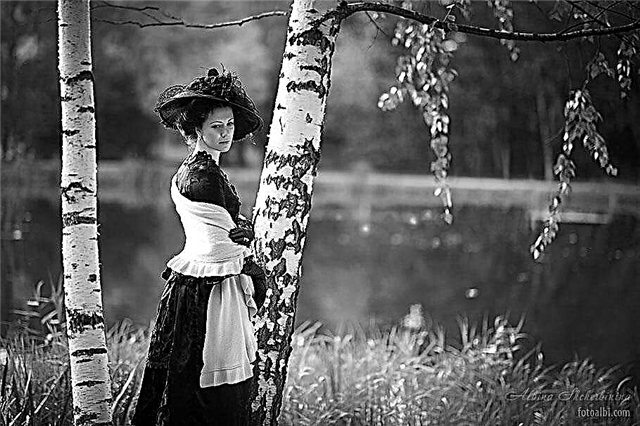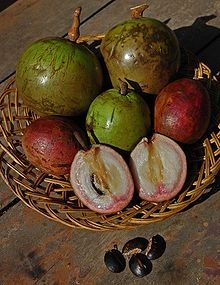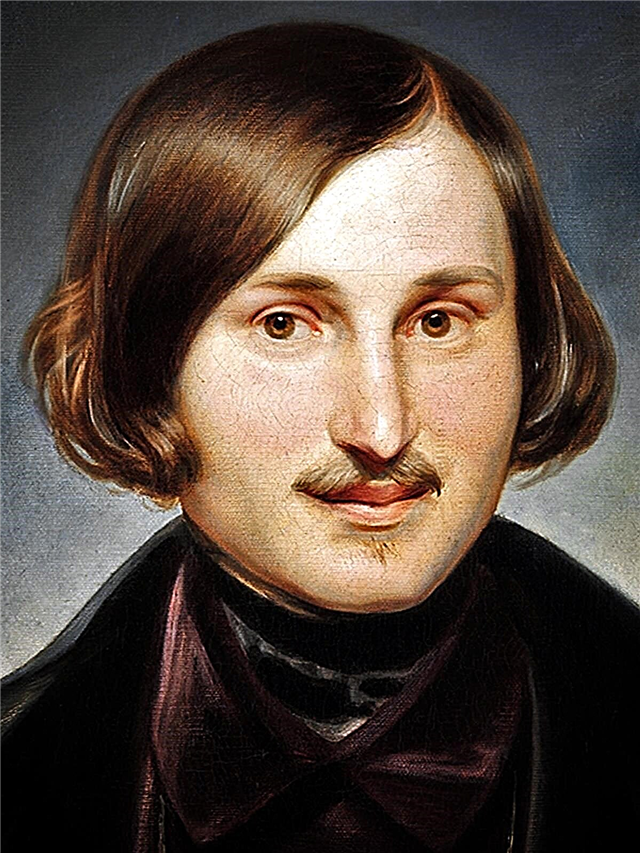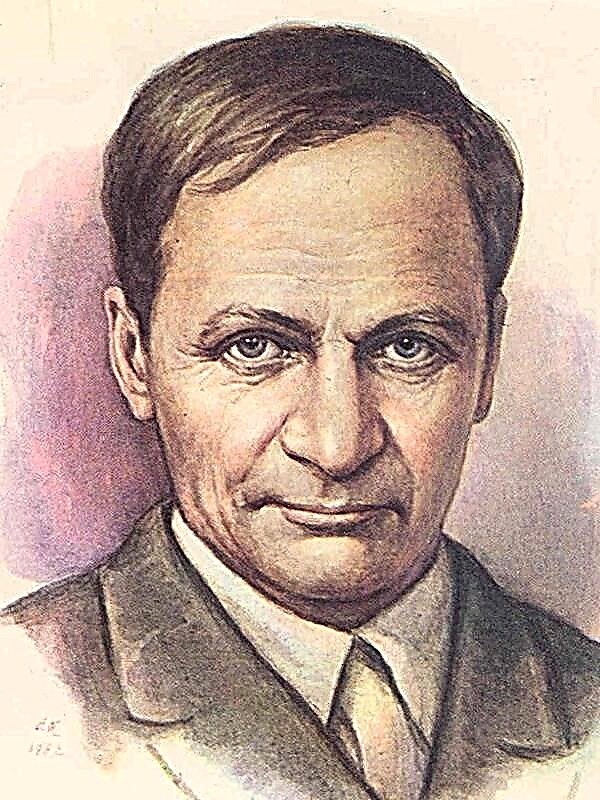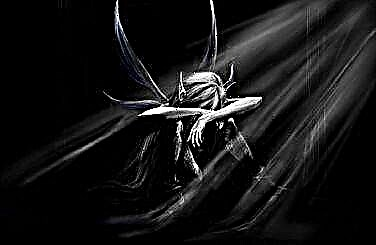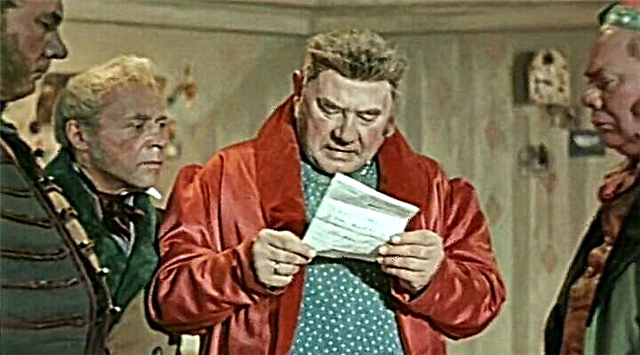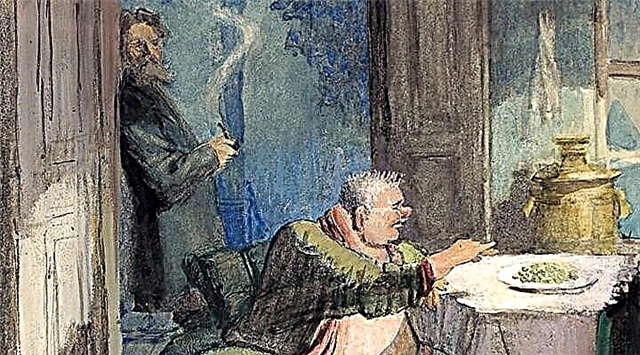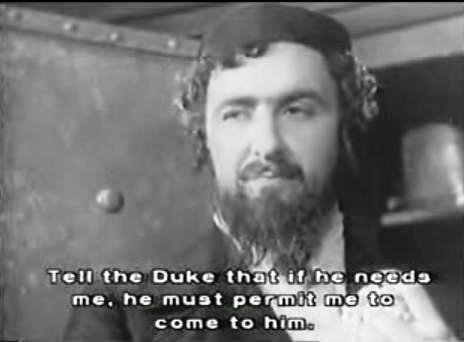The widow of the actual state adviser Tatyana Ivanovna Gardenina, together with her three children, usually spent the winter in St. Petersburg. Due to the signs of anemia in the daughter of Elise, an impressionable girl of about seventeen, the family for some time lived abroad in the summer, which upset her sons - and the younger, fifteen-year-old Raf, who was still under the supervision of tutors, and the eldest, Yuri, who had already entered school.
In the winter of 1871, a home doctor, noting an improvement in Elise’s health, allowed the family to go to the village near Voronezh for the summer. Tatyana Ivanovna writes to the housekeeper Felitsate Nikanorovna in order to prepare the estate for the arrival of the owners. In a reply letter, in addition to complaints about new “free” times, which spoiled the former serfs, which the will is “useless”, the housekeeper informs the lady, that the son of the noble master Efrem Kapitonov is studying medicine at St. Petersburg University. The housekeeper asks the lady to take Ephraim to her and settle in her house. Tatyana Ivanovna sends a butler to the student, who finds Ephraim surrounded by the same students who are rapidly discussing revolutionary ideas. Ephraim rudely rejects Gardeninina’s invitation.
Elise reads a lot and often in a dream presents herself in the place of the heroines of Dostoevsky’s novels. During one walk, she picks up a woman who was beaten in a drunken brawl and brings her to her house. When Elise is tried to calm and persuade her not to do this, she has a seizure. Servants, discussing what is happening - is it seen to drag any tear from the street and call doctors! - whisper in fear: “Well, the time has come!”
The "new time" is also hard on the patrimony - the provincial village of Gardenin. Ruler Martin Lukyanich Rakhmanny only because of his natural ingenuity and knowledge of the peasant “from the inside” contains in the severity and order of the peasants and the living in the same yard. Debt obligations no worse than serfdom, he tied workers; the economy is conducted competently and prudently. The main pride of the estate is a stud farm, famous throughout the province for its trotters. The equestrian Kapiton Averyanich is preparing for the next run of the trotter Rabbit, hoping to take the main prize and curry favor with the mistress for the ingratitude of his student son, whom the old housekeeper informed him about.
The steward accustoms the farming of his only son Nikolai, a young man of nineteen. Nikolai never went further than the county town, never studied anywhere, but even those rudiments of home education that he received, combined with the natural mind, reveal remarkable abilities in him. Nikolai’s desire for self-development is manifested in conversations with old carpenter Ivan Feodotich, clerk Agey Danilych, long-distance farm watchman Agafokl Yornik, and merchant Rukodeev. Each of these people is unique in its own way, the stories of their lives represent for Nicholas huge material for their own thoughts about human destiny. The confession of Ivan Fedotych is especially striking for the young man. In his youth, he fell in love with the maid Lyudmila. His best friend Emelyan also loved it. Lyudmila chose Ivan Druzhba, “whom the world had never seen before,” ended in a terrible event: Emelyan falsely testified to the master, as if he had seen that Ivan had stolen a bank note from his office. Ivan was nearly taken into the ranks of the soldiers, but he was merciful and only punished at the stable. Ivan, after much deliberation, summoned Emelyan and Christianly forgave him. Returning from work in a distant village, Ivan found Emelyan already married to Lyudmila. Two years later, a girl was born to them, Tatyana. But God did not give Emelyan happiness: he began to drown the consciousness of his own sin in guilt and finally drank himself after the death of his wife. Tatyana grew up, lived with Ivan, they got used to each other and “made fun” of the nobleman — they were married. Emelyan, before his death, asked Ivan: “Are you and me quits?” - cried and died, holding the hands of his daughter and old friend ...
The merchant Rukodeev gives Nikolai books from his library, evaluates the young man’s first poetic experience. Nikolai eagerly and reads a lot, writes his notes to the newspaper about peasant life. These notes are printed in abbreviated form. Martin Lukyanich is proud of his “writer” son. He no longer bothers Nikolai to spend evenings reading books.
The post-reform life brings new events to Gardenino. Quarrels in peasant families are becoming more frequent, sons are being separated from their parents, peasants are absent from work, and drunkenness is flourishing. Martin Lukyanich is struggling to keep peasants from rioting riots, the danger of which is growing in the face of an impending cholera epidemic. The thoroughbred trotter Rabbit on the run comes first, but the next night he is poisoned by competitors from another plant. And everyone connects this incredible hitherto event with new times. "Unbelted people!" - the manager sighs.
Arriving in Gardenino's noble family. At this time, student Ephraim also arrives. He makes a pleasant impression on the lady with his education, good manners. The lady asks him to work out with Elise. The girl also likes communicating with a young man who boldly and directly expresses his views. Their relationship develops into a feeling that is mainly based on a passion for revolutionary ideas. The old housekeeper spies on Ephraim and Elise and, when he hears their declarations of love, rushes at Ephraim in a rage. Elise falls in a fit. The housekeeper is frightened, not understanding what is happening, and asks the lady to leave for the monastery. Having learned about the relationship between Elise and the student, Gardenin dismisses his equestrian father. Kapiton Averyanych, understanding the reason for his dismissal, drives his son out of the house. The wife of the horse, a slaughtered woman, living only with love for her son, cannot stand such a blow and dies. The stableman hangs himself. Ephraim and Elise run away from home and secretly marry in St. Petersburg. Life in Gardenin completely leaves its relatively calm current. The lady leaves, sends a new manager. The entire economy is being rebuilt, unprecedented machines appear, creating the impression of progress, for which the new manager is advocating.
But there are people who, in this chaos of the emerging new life, destroying the old foundations, sow sprouts of goodness and humanity. The most striking of them is Nikolai Rakhmanny. During this time he went through a difficult and difficult path of knowledge of life. Even at the time when he went to Ivan Fedotych and his young wife, unexpectedly for himself, he fell in love with Tatyana, and one evening, when the old man was not at home, young people became secret lovers. Tatyana confesses to her husband her infidelity, and Ivan Fedotych takes his wife to a distant village. Nikolai is experiencing his act, repents, especially he is tormented when he finds out that a child is born to Tatyana - his son.
Nikolai meets Vera Turchaninova, the daughter of the bailiff, and together they open a school for peasant children in an abandoned farm where Vera teaches. When Vera arrives in a county town, intending to explain herself to Nikolai temporarily working there and give consent to marriage with him, he annoyedly announces to her that he will marry another - the daughter of the owner of the house in which he lives. Prior to this, the owner’s daughter arranged a meeting with Nikolai, witnessed by her father, and Nikolay, in dismay, agreed to become the husband of this cunning girl. Faith leaves in despair. But Nikolai meets with understanding from his future father-in-law, who, having understood all the circumstances of his daughter’s upcoming marriage, advises Nikolai to quickly escape from his child.
Fate brings Nikolai to the house of Tatyana and Ivan Fedotych, he sees his little son there. Ivan Fedotych, noting that Nikolai and Tatyana truly love each other, blesses them with Christian senile humility and leaves to wander.
Ten years later, Tatyana managed in her own shop, waiting for her husband, who had left for the city to sit in the zemstvo assembly. She is helped by a twelve-year-old son, here is a well-groomed and noble old man - Martin Lukyanich. He proudly tells visitors about his son, Nikolai Rakhmann, who is now "the chief specialist in the county affairs in the county."
Returning from the Zemstvo, Nikolai meets in the town of Rafail Konstantinovich Gardenenin, who admires the recent report on schools made by Nikolai in the Zemstvo. Young people talk about the affairs and concerns of the zemstvo, about the needs of the school, and recall their past lives. Gardenin invites Nicholas to drop by his estate. Nikolai sees a renewed village, changed outbuildings, but he also sees ragged, drunken men. He thinks that a new life is hard being born, that the only way to it is hard everyday work, the “voluntary yoke” of which he will never want to take off. On the estate, Nikolai listens to the manager’s story about the new structure of the economy, meets with his wife. This is Vera Turchaninova, who long ago forgot the aspirations of her youth, used to travel to expensive resorts and leads an idle life.
Nikolai is relieved to leave Gardenin, thinking about the upcoming meeting with his wife and son, and the feeling of sorrow of a past life gradually leaves him. He thinks not about his life, but about life in general, and the exciting appeal of the future lights up in his heart.

